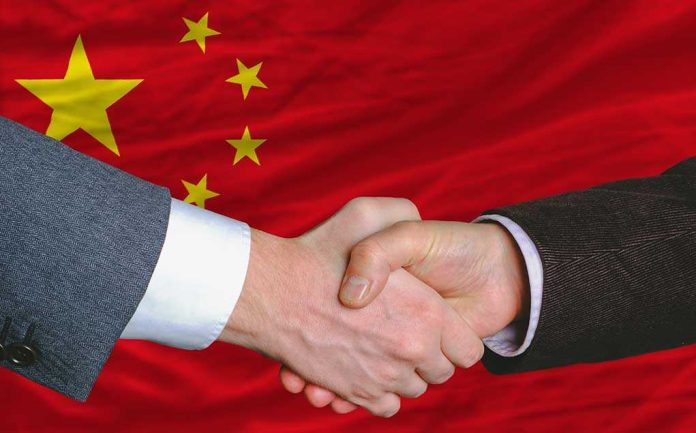
China’s premier is crossing the border into North Korea this week—an event that could reset the region’s balance of power and leave world leaders wondering what comes next.
Story Snapshot
- First top-level Chinese visit to North Korea in years signals renewed alliance.
- Trip comes as nuclear tensions and shifting alliances grip Northeast Asia.
- Economic cooperation and military coordination are on the table.
- Beijing and Pyongyang aim to send a message to Washington and Seoul.
Historic Ties Reforged at a Critical Juncture
China and North Korea’s partnership was forged in the crucible of war and ideology. Diplomatic ties began in 1949, just after both nations emerged as communist states. When North Korea faced collapse during the Korean War (1950–53), China intervened militarily, cementing a “blood alliance” that endured through decades of shifting global tides. The 1961 Treaty on Friendship, Cooperation, and Mutual Assistance remains China’s only formal defense pact, a reminder of strategic priorities that go far beyond mere neighborly relations.
The alliance faced severe tests. The Cold War’s ideological schisms, border clashes, and China’s dramatic opening to the West in the 1970s all threatened to undermine the relationship. In 1992, China normalized relations with South Korea, cutting aid to Pyongyang and forcing North Korea deeper into isolation. Yet, through nuclear crises and the harshest of sanctions, Beijing continued to offer economic lifelines—never quite letting go, but always keeping Pyongyang at arm’s length.
Strategic Motivations: Why Now, and What’s at Stake?
This week’s visit is not just ceremonial. With the Korean Peninsula simmering and the U.S. reinforcing its alliances with Seoul and Tokyo, China is recalibrating its approach to regional stability. Beijing needs North Korea as a buffer state, a bargaining chip, and a bulwark against Western encroachment. For Pyongyang, the stakes are existential. Kim Jong Un seeks economic aid, diplomatic backing, and security guarantees—leverage for his regime’s survival and ambitions.
The power dynamic is unmistakable. China is the senior partner, wielding economic might and diplomatic cover. Yet, North Korea’s unpredictability keeps Beijing wary. Pyongyang values support but resists dependency; it craves autonomy even as it courts Chinese investment and humanitarian assistance. Xi Jinping and the Chinese Communist Party see the alliance as a tool—one that must be managed with care, lest it unravel into chaos or embolden North Korea’s nuclear brinkmanship.
Diplomacy in Motion: The Unfolding Drama in Pyongyang
Preparations in Pyongyang are underway for a visit filled with symbolism and substance. Expect joint statements celebrating “unbreakable ties” and “regional stability.” Both governments have already signaled their intent: China’s Foreign Ministry has reaffirmed its commitment to the “traditional friendship,” while North Korean state media touts the visit as proof of mutual support against outside pressure.
The official agenda remains closely held, but analysts anticipate agreements on expanding economic cooperation and possibly new arrangements for security coordination. The timing is no accident. Recent months have seen intensified diplomatic exchanges, military exercises by the U.S. and its allies, and a flurry of summit meetings across Northeast Asia. This visit is Beijing’s answer—a demonstration that its alliance with Pyongyang remains a pillar of its regional strategy.
Consequences for the Region—and the World
Short-term effects are already rippling outward. North Korea stands to gain renewed aid, easing its economic isolation and signaling resilience to adversaries. China gets a stronger hand in shaping regional affairs and countering Washington’s influence. The visit complicates efforts by South Korea, Japan, and the United States to pressure Pyongyang on nuclear issues, potentially shifting the calculus in future negotiations.
Long-term, the revitalized alliance could reinforce authoritarian solidarity in Northeast Asia, making sanctions enforcement more complex and reshaping supply chains if cross-border trade expands. U.S. and South Korean experts warn that deeper China-North Korea cooperation could further embolden Pyongyang’s nuclear ambitions. Others see Beijing as a moderating force, balancing support with pressure to prevent escalation.
Sources:
U.S. Army War College Monograph
National Committee on North Korea (NCNK)
Council on Foreign Relations (CFR)



